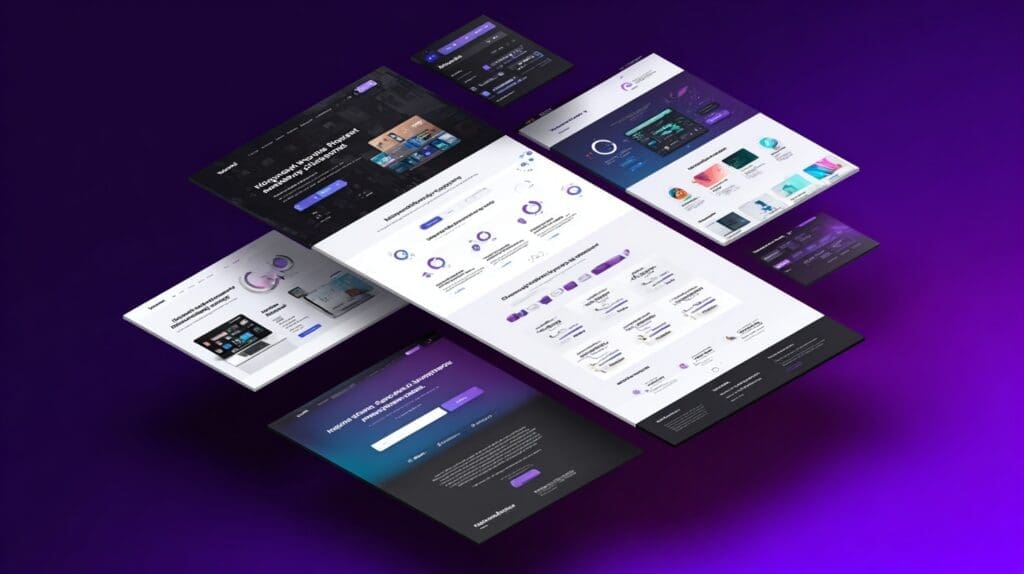If you want your website to bring in the right kind of visitors – the ones who are actually interested in what you do – then choosing the right keywords is absolutely essential. But how do you know which keywords are right for your business? And how do you avoid wasting time chasing phrases that no one’s actually searching for?
In this guide, I’ll walk you through how to choose the right keywords for your website without relying on guesswork. Whether you’re building a brand new site or looking to improve your existing content, this post will give you the tools and tips to do it properly – and in plain English.
What Are Keywords and Why Do They Matter?
Keywords are the words or phrases that people type into Google when they’re searching for something. If your website includes the same words that your ideal customers are searching for, you’ve got a much better chance of showing up in the search results.
But it’s not just about being seen – it’s about being seen by the right people. There’s no point ranking for a keyword if the people clicking on your site aren’t actually looking for what you offer. Good keyword research helps you attract visitors who are already looking for the thing you provide.
Common Mistakes People Make With Keywords
Before we dive into how to do it properly, here are a few common pitfalls I see all the time:
- Guessing what people search for instead of checking the data
- Trying to rank for broad, highly competitive keywords like “web design” or “marketing”
- Using too many different keywords on one page
- Forgetting about local intent, especially for small businesses
The good news is all of this can be fixed with a bit of proper research and a clear strategy.
Start With Your Customers
Think about who your ideal customer is. What sort of problems are they trying to solve? What questions do they ask? What language do they use?
For example, if you run a local plumbing business, your customers might search for:
- emergency plumber in Leeds
- boiler repair near me
- local plumbing services
That’s the sort of thinking you want to adopt. Use real-world language, not industry jargon. A potential client is more likely to type “cheap website for small business” than “cost-effective digital presence solutions.”
Use Keyword Tools (The Right Way)
Once you’ve brainstormed a few ideas, it’s time to use some tools to see how often people actually search for those terms. Here are a few free options to get started:
- Google Keyword Planner: Great for search volume estimates
- Google Trends: See how search interest changes over time
- Answer the Public: Generates questions people ask around a topic
- Keywords Everywhere: A browser extension that shows keyword data directly in Google
When you use these tools, look for keywords that strike a balance between search volume and competition. High-volume keywords tend to be very competitive, so it’s often better to go after more specific “long-tail” keywords like “WordPress web designer in Leeds” or “affordable ecommerce website UK.”
Don’t Forget About Local SEO
If you run a local business (like most of my clients), then local intent is everything. This means adding location-based keywords to your site, like:
- web designer in Leeds
- SEO services West Yorkshire
- WordPress developer near me
Adding these kinds of phrases helps Google understand where your business operates, so it can show your website to people in your area.
If you haven’t already, check out our Local SEO services to see how we help businesses show up in local searches.
Spy On Your Competitors (A Bit)
You don’t need to copy your competitors, but it’s smart to see what they’re ranking for. Type in a few of your keyword ideas and see who shows up. What sort of content are they producing? What words do they repeat in their page titles and headers?
There are also tools like Ubersuggest or Semrush that let you check what keywords other websites rank for. Again, don’t get caught up trying to beat the big companies – focus on finding gaps or angles they’ve missed.
Map Keywords to Your Website Pages
Once you’ve got a good list of potential keywords, it’s time to map them out. Each page of your website should target a specific keyword (or small group of closely related ones).
For example:
- Homepage: “Leeds Web Designer” or “WordPress Web Design Leeds”
- About page: “freelance web designer Leeds”
- Services page: “affordable website design for small businesses”
- Blog post: “how to improve website speed”
Trying to target too many different keywords on one page will confuse Google – and your readers. Be clear and focused.
Optimise Without Overdoing It
Once you’ve chosen your keywords, you’ll want to include them naturally in the following places:
- Page title (the title that shows in Google)
- Meta description (the snippet under your title in search results)
- URL (if possible)
- H1 heading
- Body content
- Image alt text
But don’t go overboard. Keyword stuffing makes your site look spammy and puts people off. Always write for humans first, and search engines second.
Create Content That Matches Intent
There are different types of search intent:
- Informational: e.g. “what does a web designer do”
- Navigational: e.g. “Leeds Web Designer website”
- Transactional: e.g. “hire web designer in Leeds”
Your content should match what the person is looking for. Don’t try to sell someone a service if they’re just looking for information. Instead, create helpful blog posts or guides that answer their questions and gently guide them to your services.
Our Blog is full of articles like this that help educate readers and build trust over time.
Review and Refine Over Time
SEO isn’t a one-and-done job. Keep an eye on what’s working and what isn’t. Use Google Search Console to track which keywords are driving traffic to your site, and adjust your content as needed.
Sometimes small tweaks – like improving a page title or updating old content – can make a big difference.
A Quick Word on Voice Search
With more people using smart speakers and phones to search by voice, it’s worth including some natural, conversational phrases on your site. These often come in the form of questions, like:
- How much does a small business website cost?
- What’s the best platform for ecommerce?
These phrases are usually less competitive and easier to rank for.
Final Thoughts
Keyword research doesn’t have to be technical or overwhelming. If you focus on understanding your customers, use the right tools, and build content that matches what people are really searching for, you’ll start seeing better results.
And if you’re not sure where to start or just want someone to take it off your plate…
Need Help Choosing the Right Keywords?
If all this still feels a bit much, or if you’d rather just focus on running your business while someone else handles the techy stuff, I’d be happy to help. At Leeds Web Designer, we offer full website design and SEO services tailored to small businesses.
Whether you need help choosing the right keywords, writing content, or building a website that converts, get in touch for a free no-obligation chat or quote.
Let’s make your website work harder for your business.




